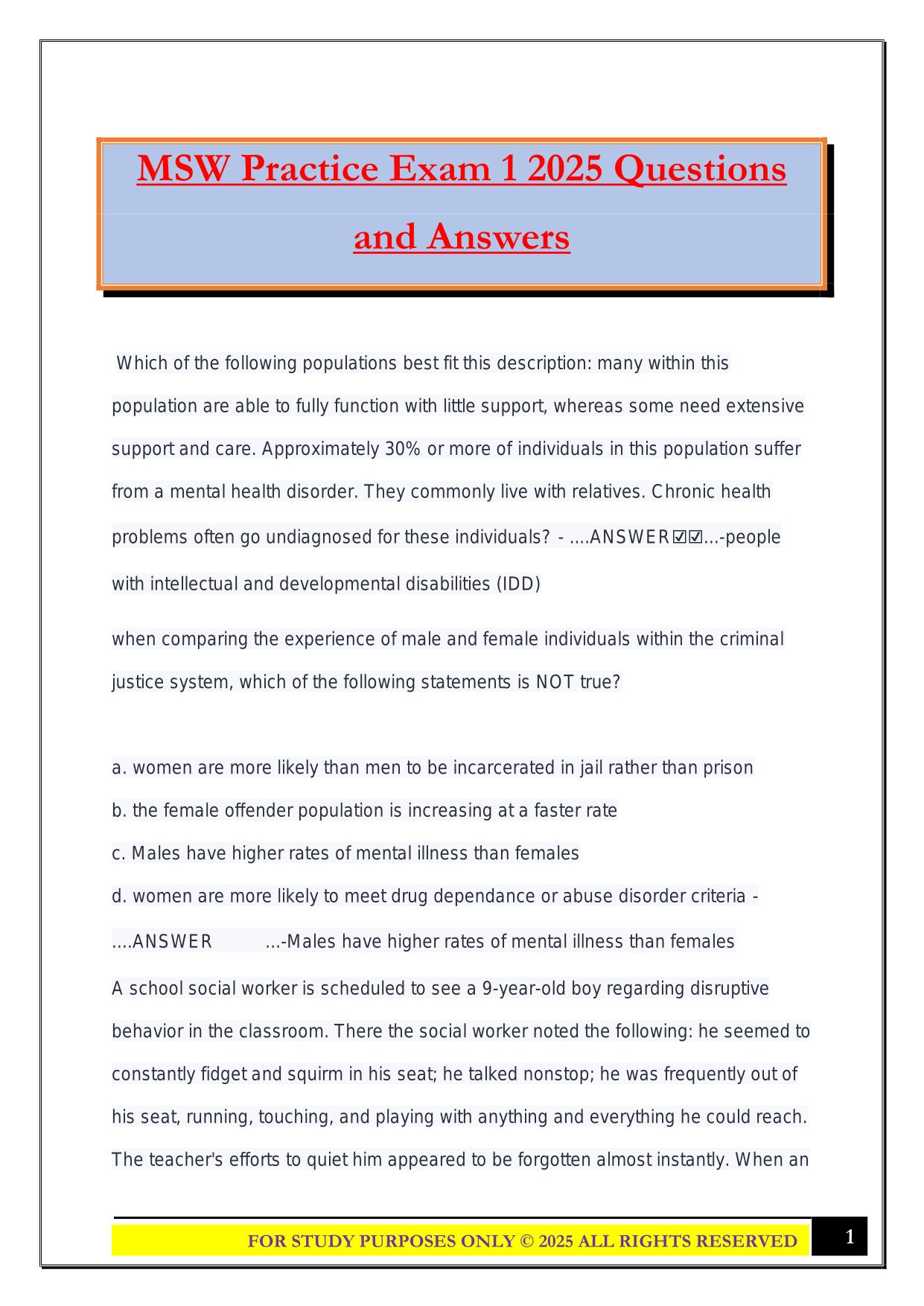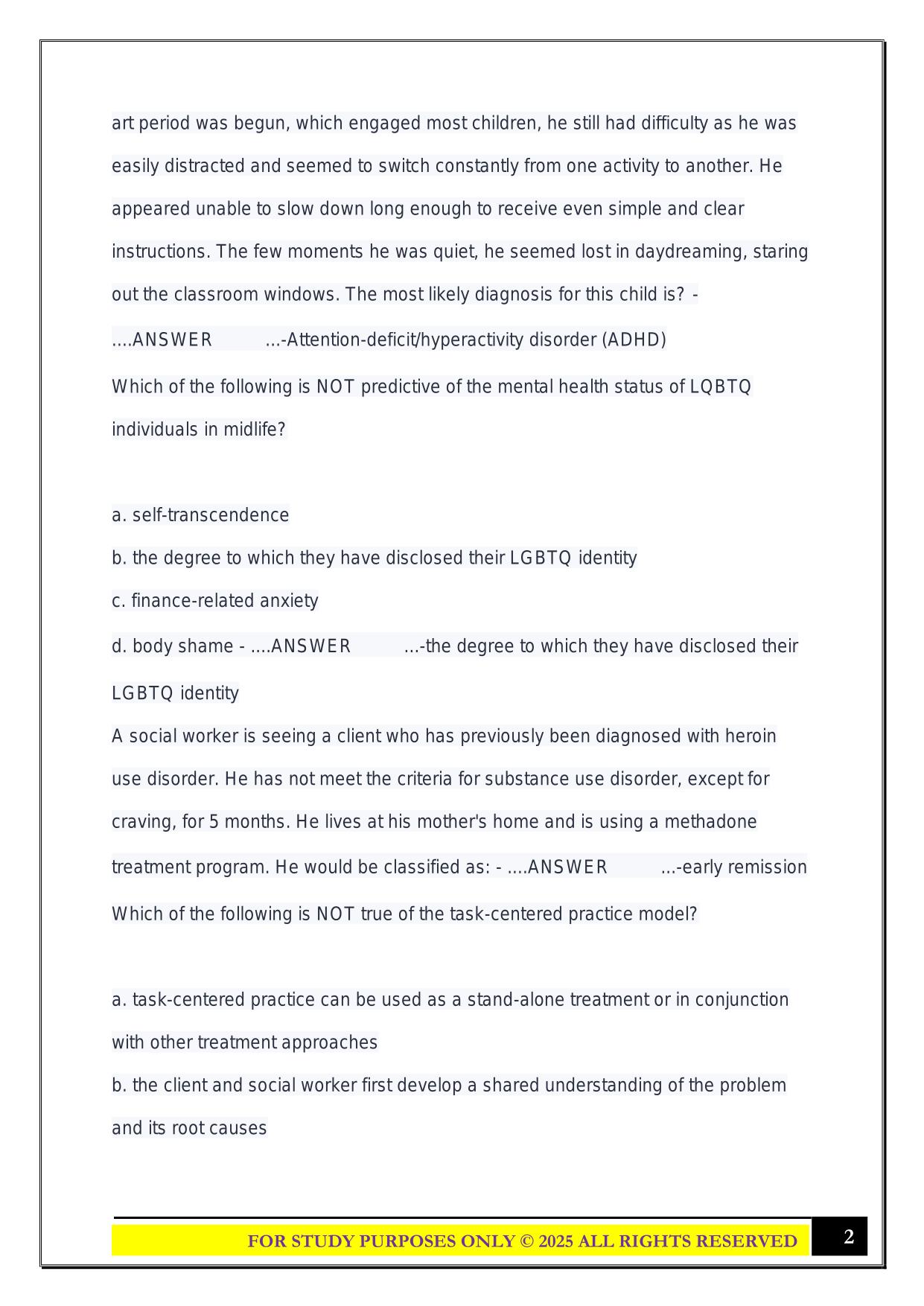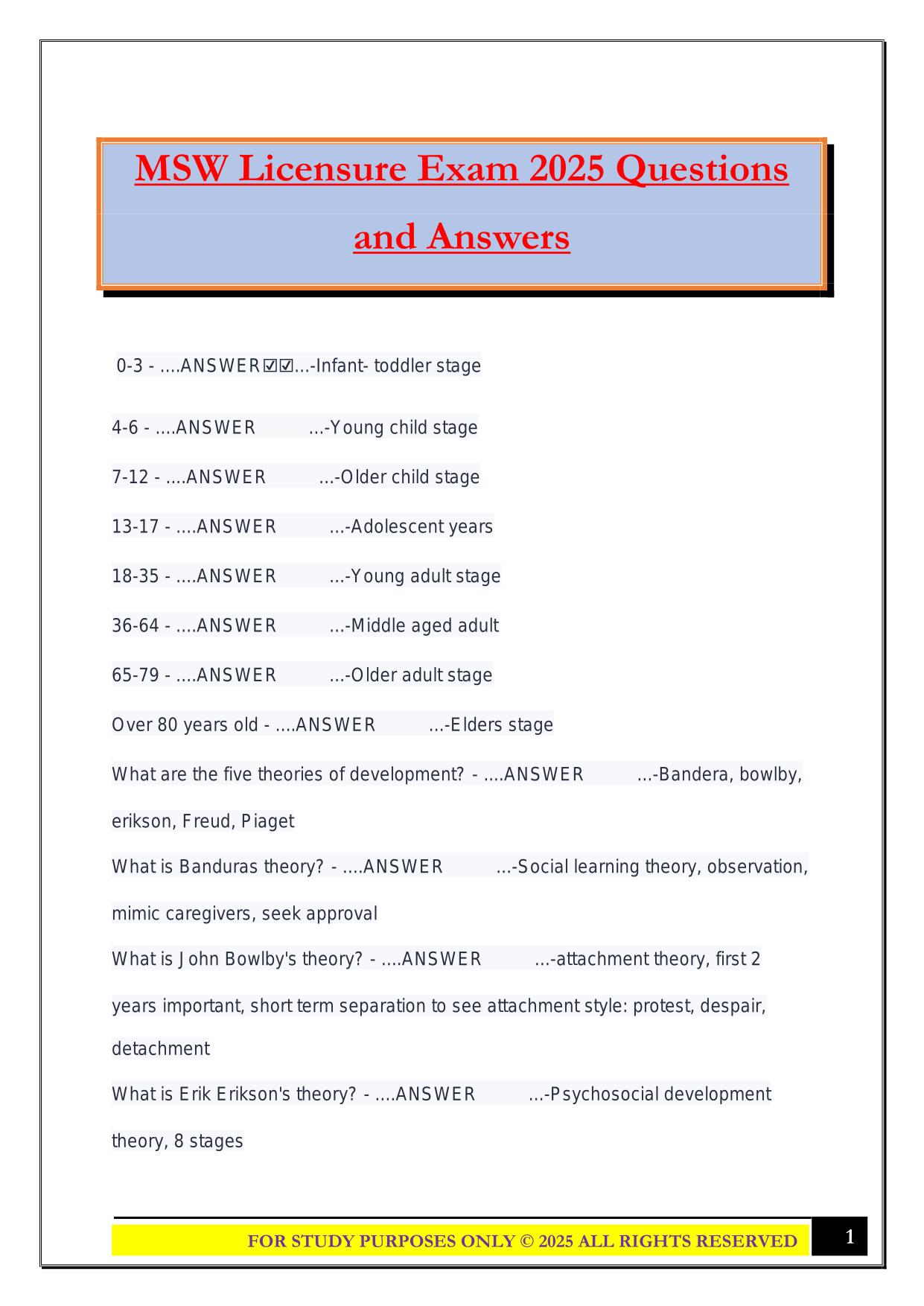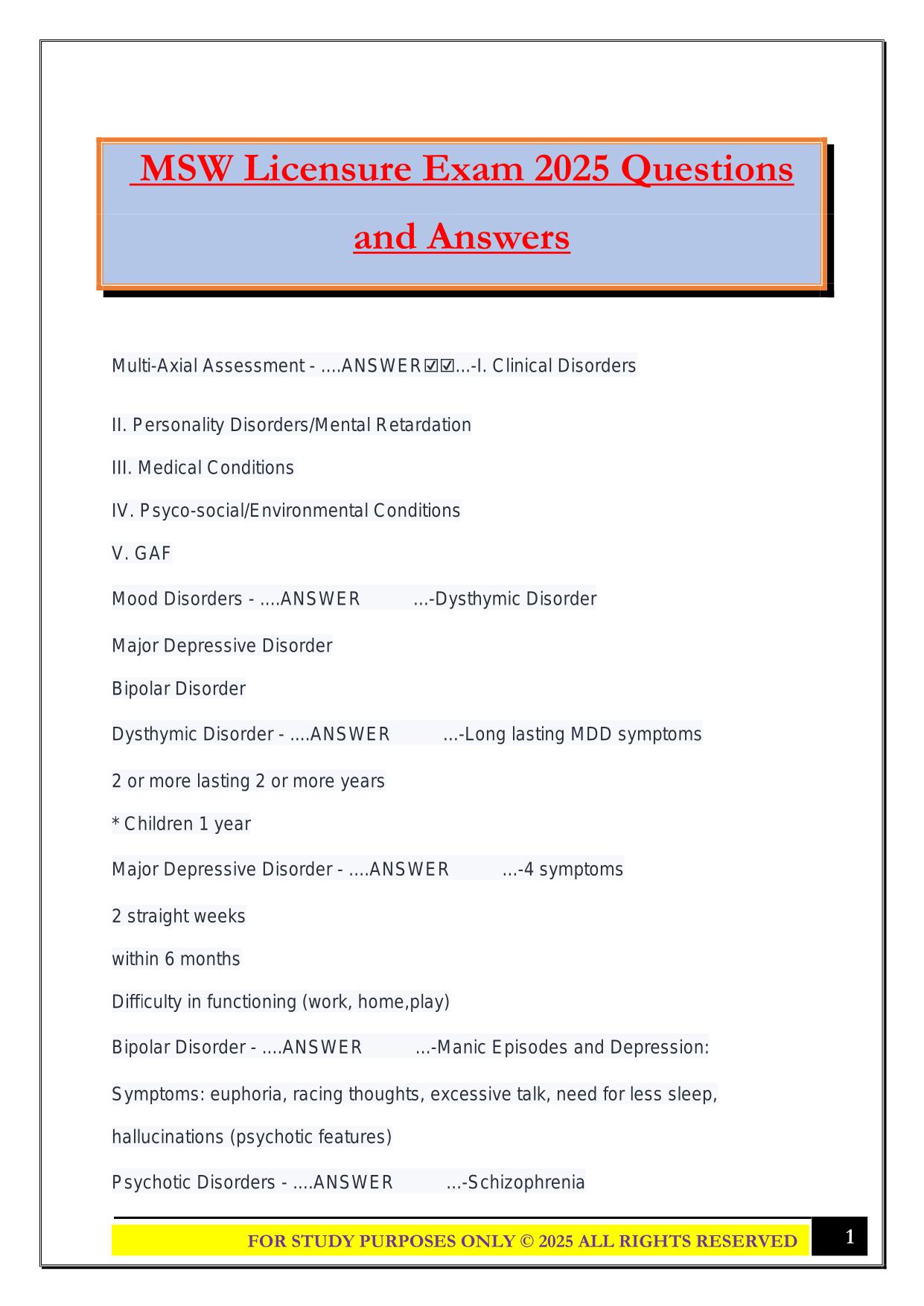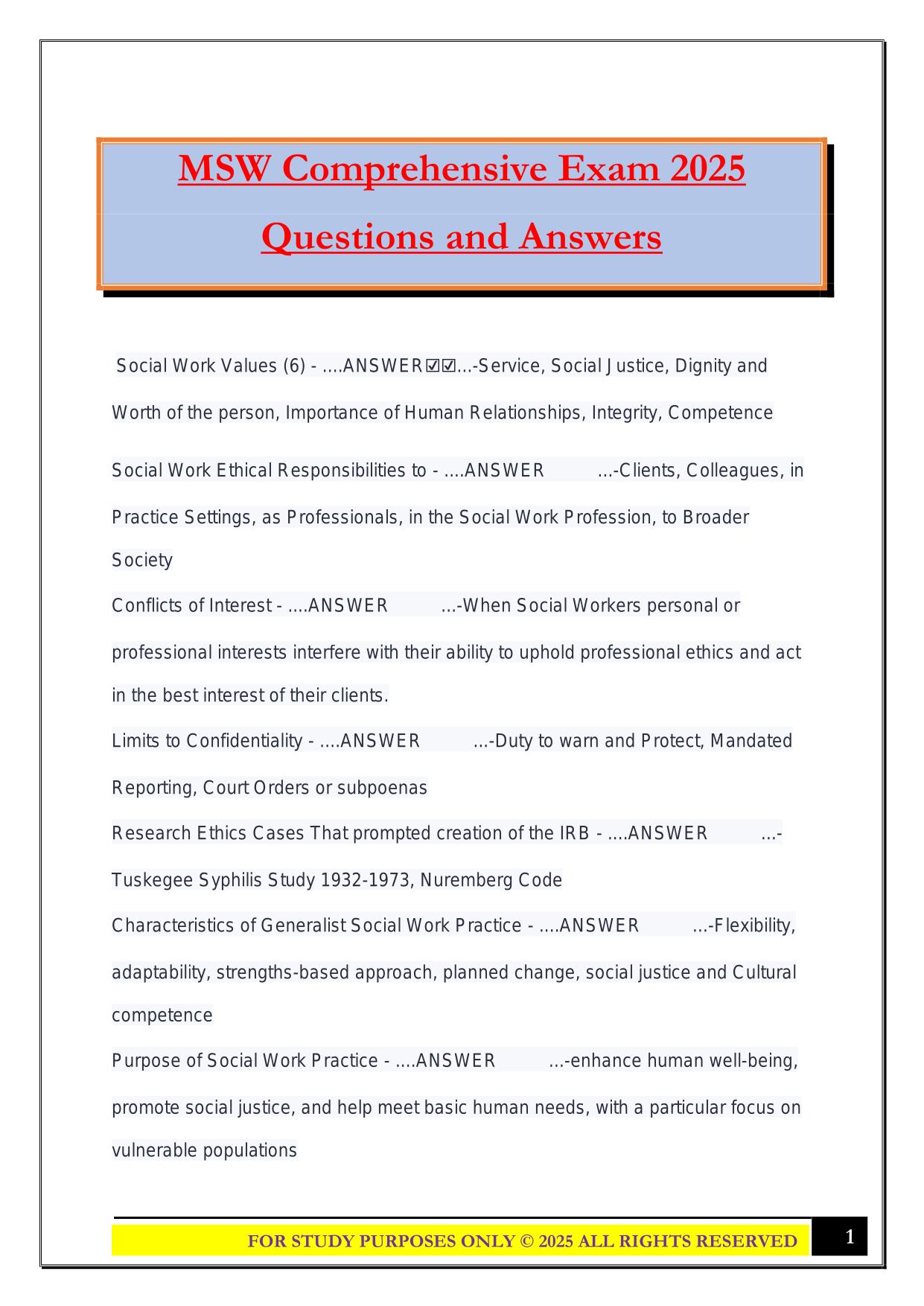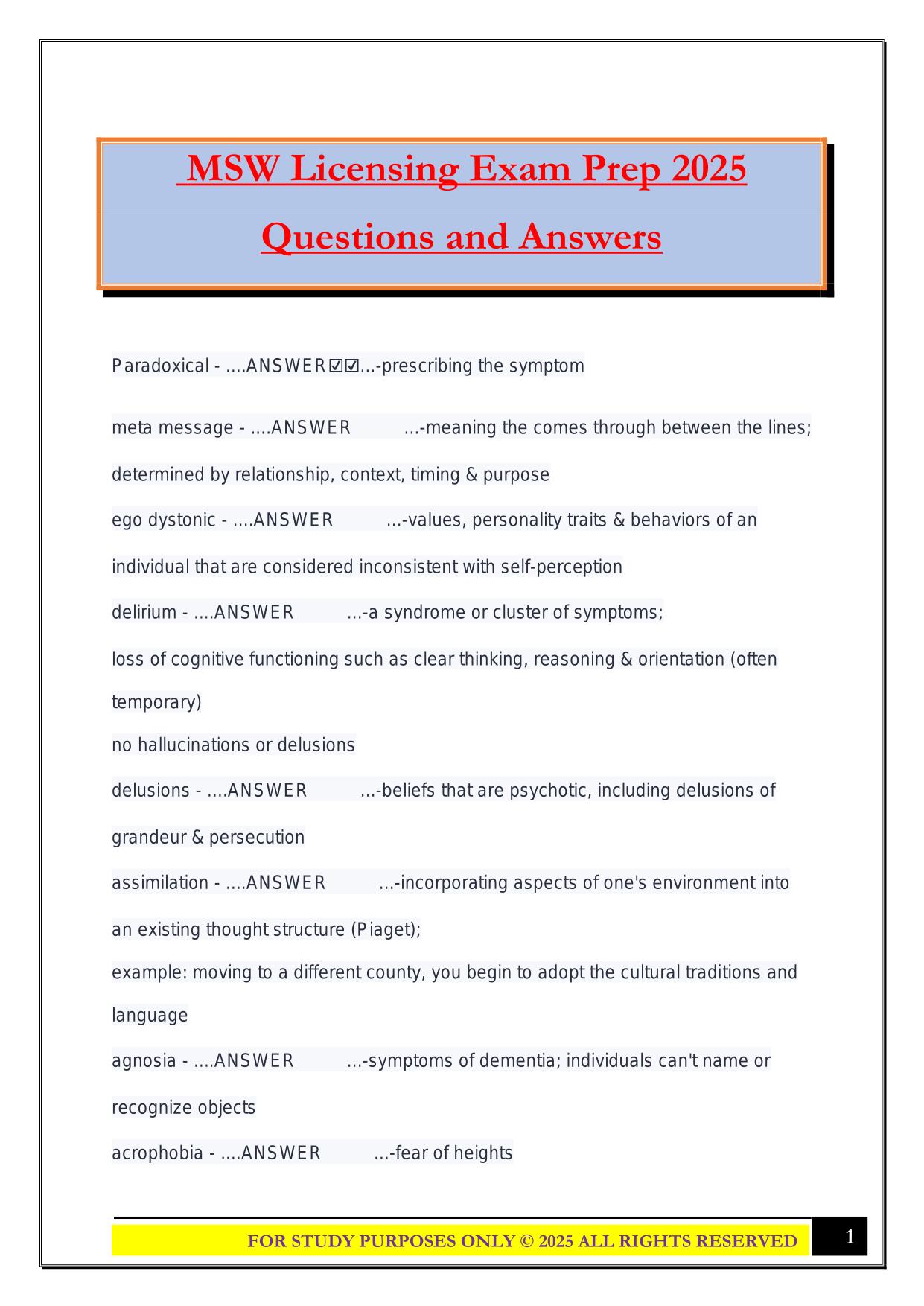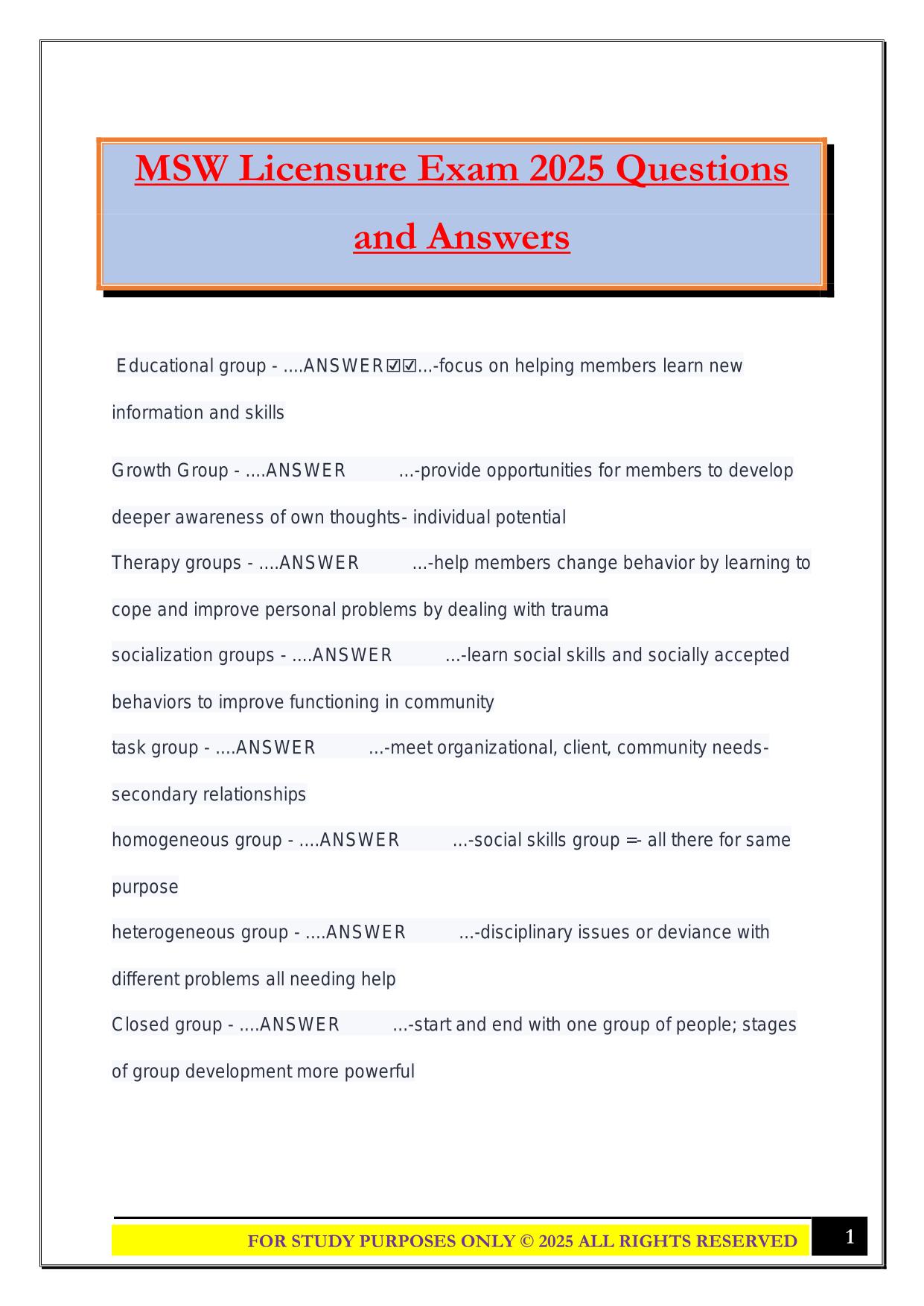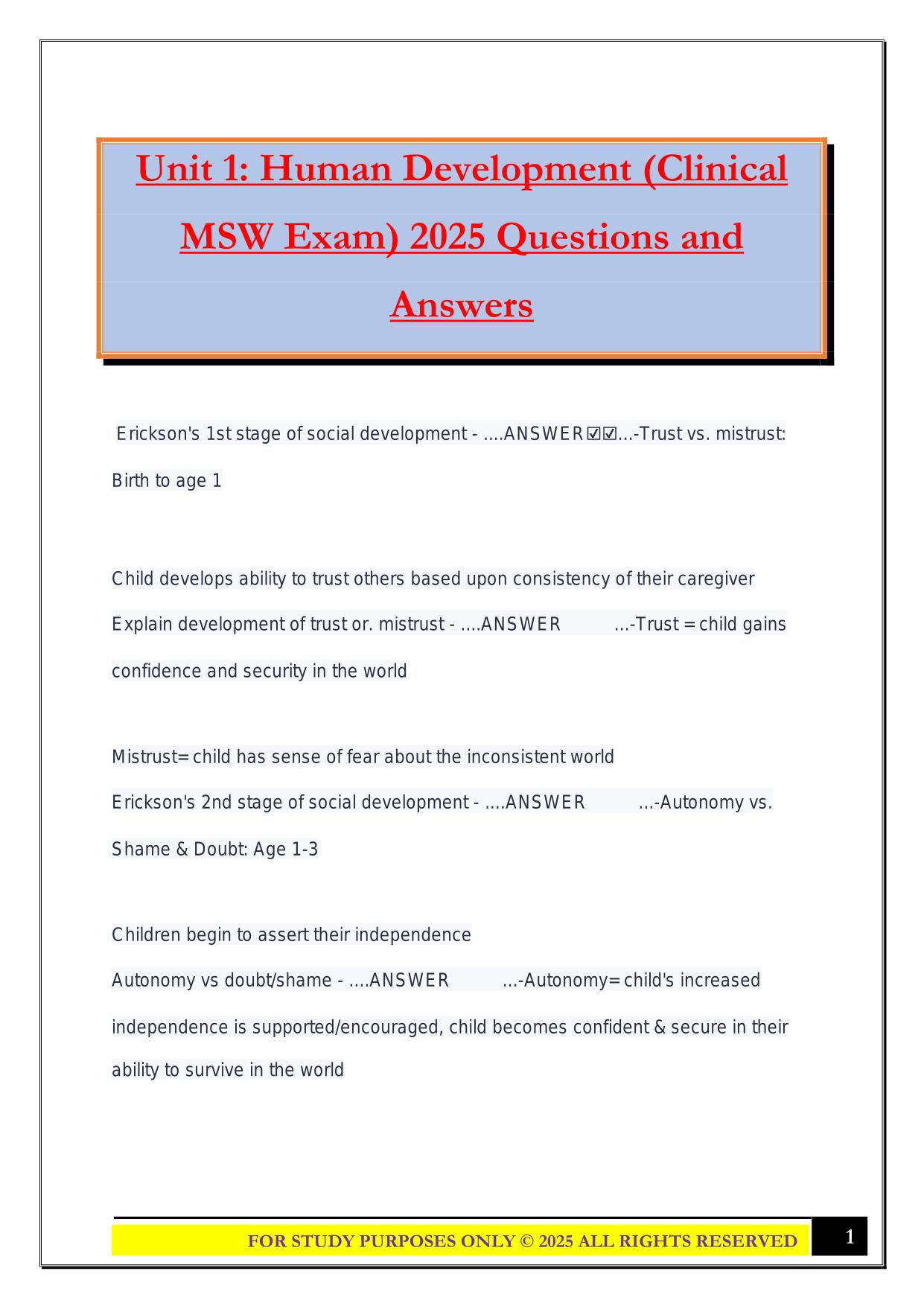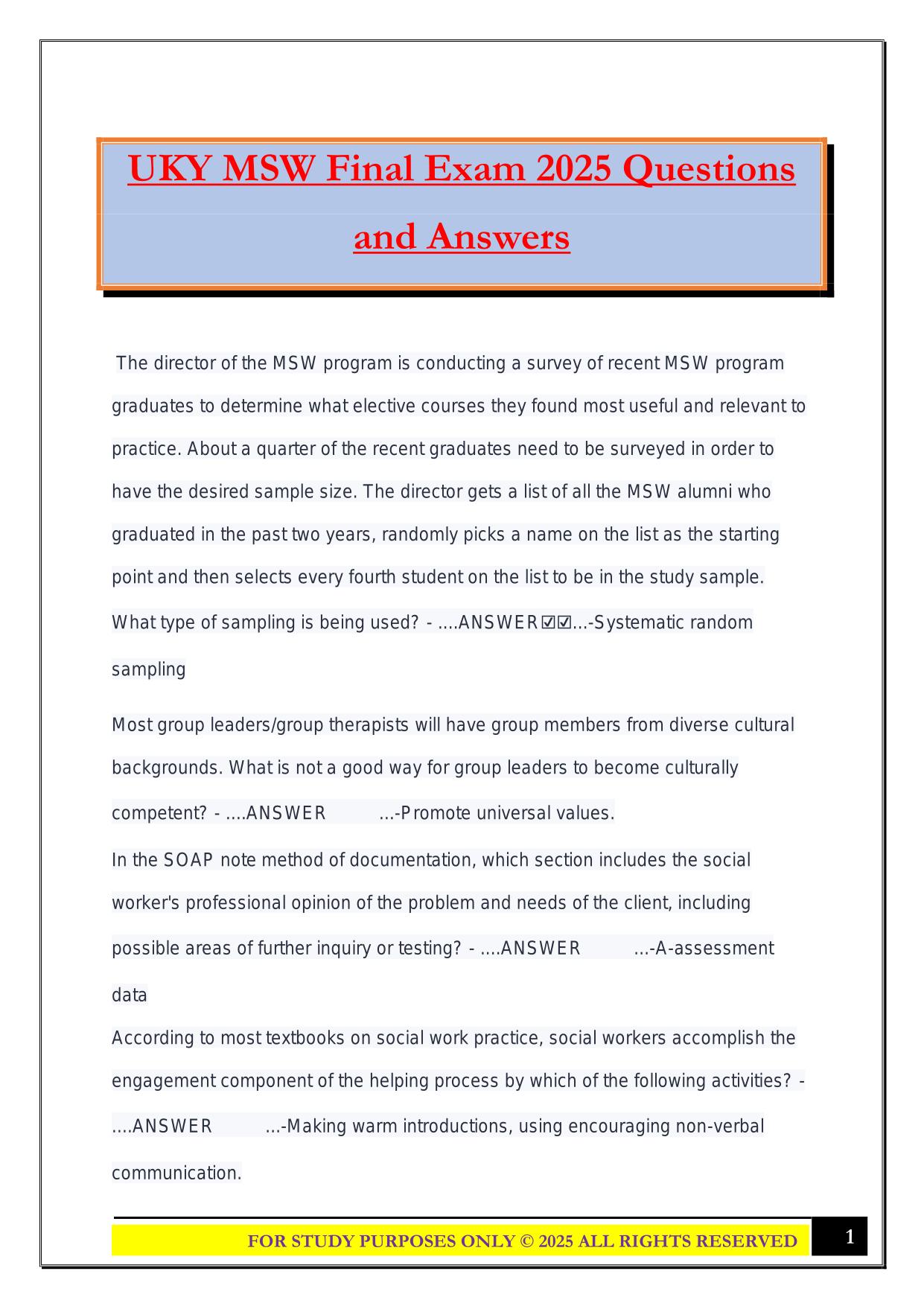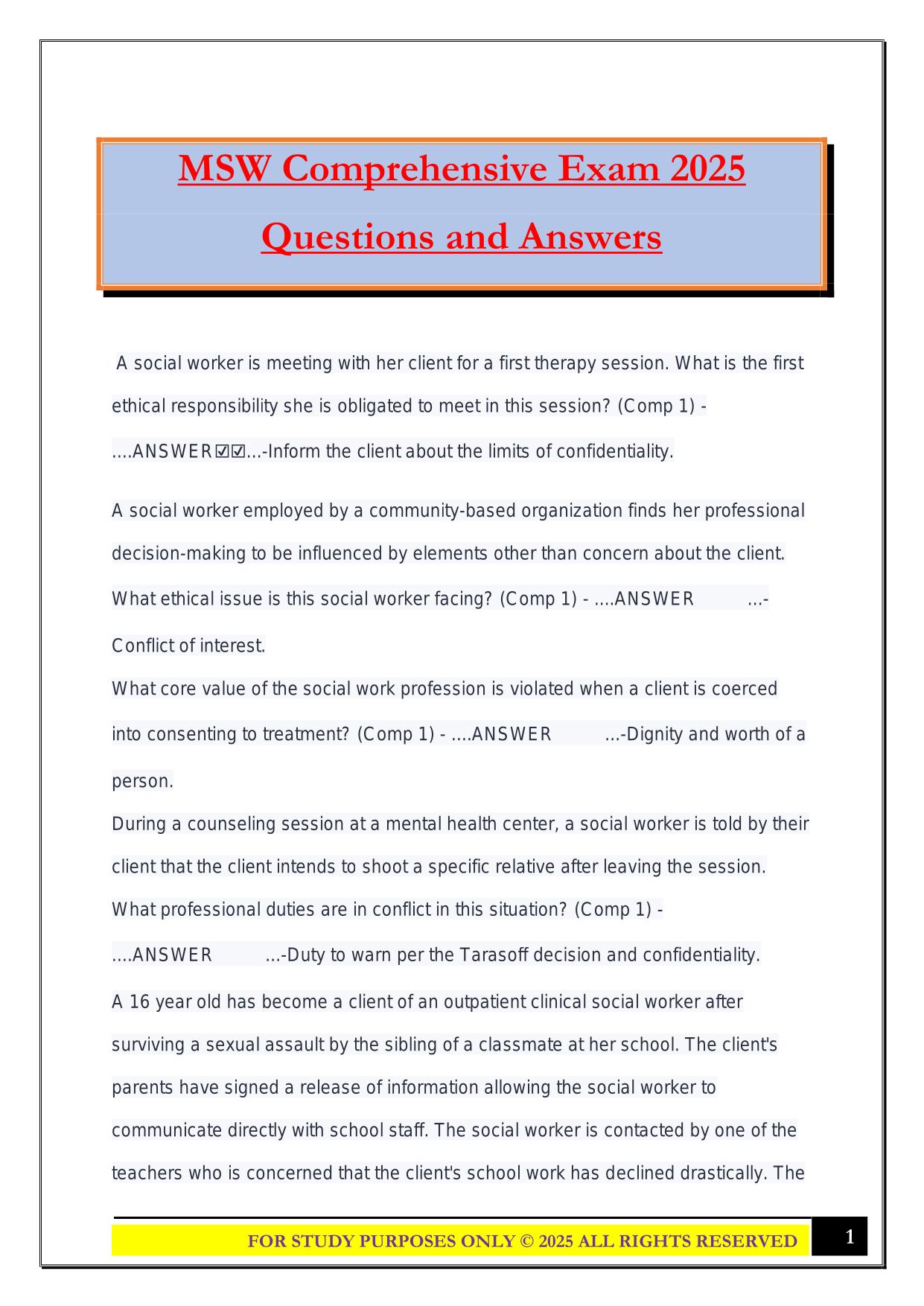MSW Practice Exam 1 2025 Questions and Answers
MSW Practice Exam 1 2025 Questions and Answers
Course:
MSW
Institution:
MSW
MSW Practice Exam 1 2025 Questions and Answers
After purchase, you get:
✅ Instant PDF Download
✅ Verified answer explanations
✅ Refund if not Satisfied
✅ Prepared for 2025/2026 test cycle
Document Information
| Uploaded on: | September 3, 2025 |
| Last updated: | September 3, 2025 |
| Number of pages: | 49 |
| Written in: | 2025/2026 |
| Type: | Exam (elaborations) |
| Contains: | Questions & Answers |
| Tags: | MSW Practice Exam 1 2025 Questions and Answers |
Seller Information

SophiaBennett
Reviews Received
User Reviews (0)
Exam (Elaborations)
$10.50
Bundle Deal! Get all 11 docs for just $24.99
Add to Cart
100% satisfaction guarantee
Refund Upon dissatisfaction
Immediately available after purchase
Available in Both online and PDF
$10.50
| 0 sold
Discover More Resources
Available in a Bundle
Content Preview
MSW Practice Exam 1 2025 Questions and Answers Which of the following populations best fit this description: many within this population are able to fully function with little support, whereas some need extensive support and care. Approximately 30% or more of individuals in this population suffer from a mental health disorder. They commonly live with relatives. Chronic health problems often go undiagnosed for these individuals? - ....ANSWER☑️☑️...-people with intellectual and developmental disabilities (IDD) when comparing the experience of male and female individuals within the criminal justice system, which of the following statements is NOT true? a. women are more likely than men to be incarcerated in jail rather than prison b. the female offender population is increasing at a faster rate c. Males have higher rates of mental illness than females d. women are more likely to meet drug dependance or abuse disorder criteria ....ANSWER☑️☑️...-Males have higher rates of mental illness than females A school social worker is scheduled to see a 9-year-old boy regarding disruptive behavior in the classroom. There the social worker noted the following: he seemed to constantly fidget and squirm in his seat; he talked nonstop; he was frequently out of his seat, running, touching, and playing with anything and everything he could reach. The teacher's efforts to quiet him appeared to be forgotten almost instantly. When an FOR STUDY PURPOSES ONLY ©️ 2025 ALL RIGHTS RESERVED 1
 US
US

